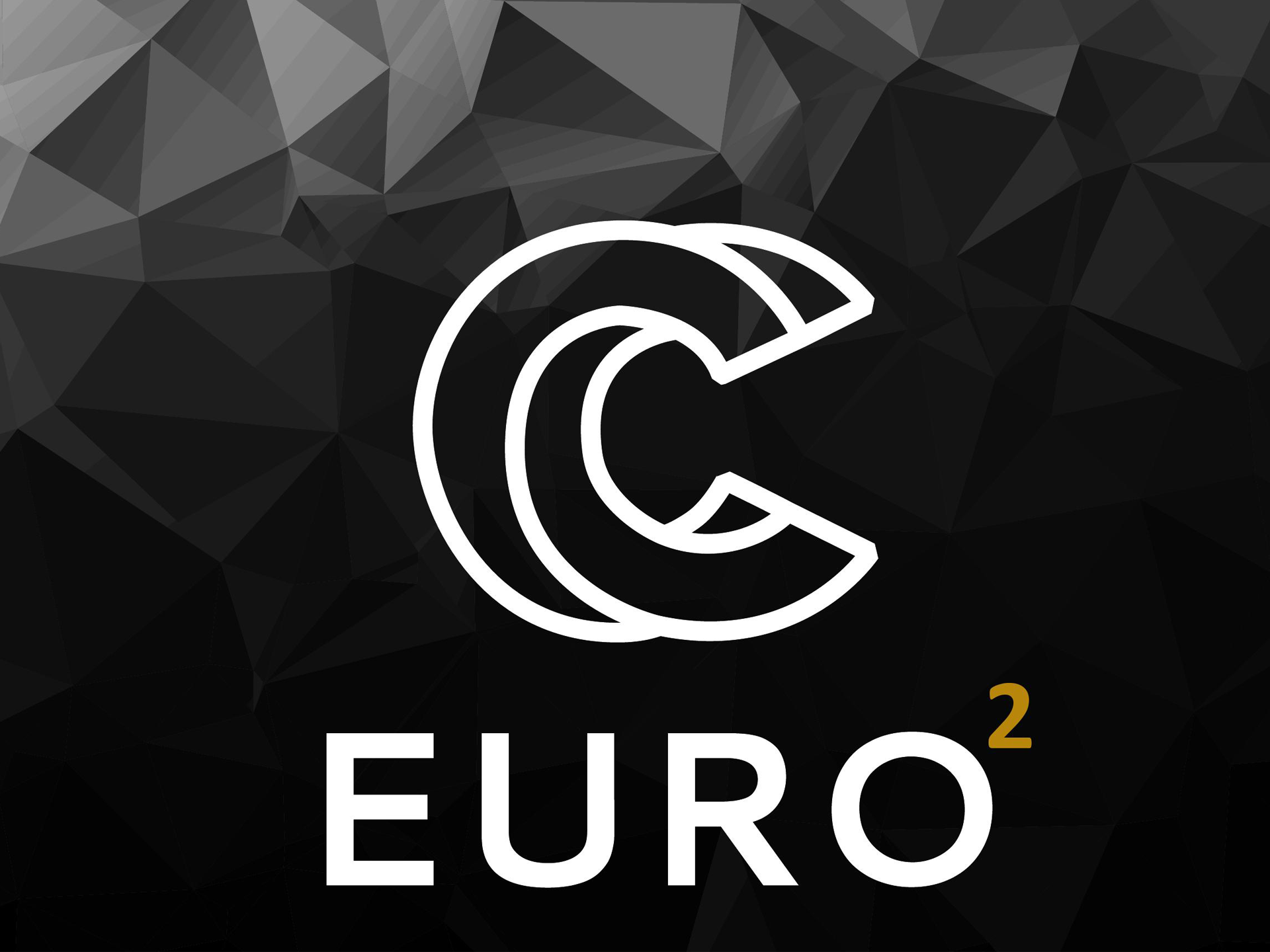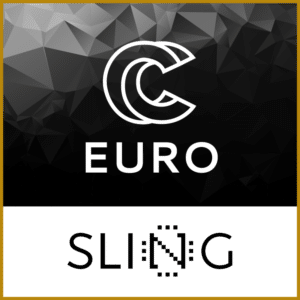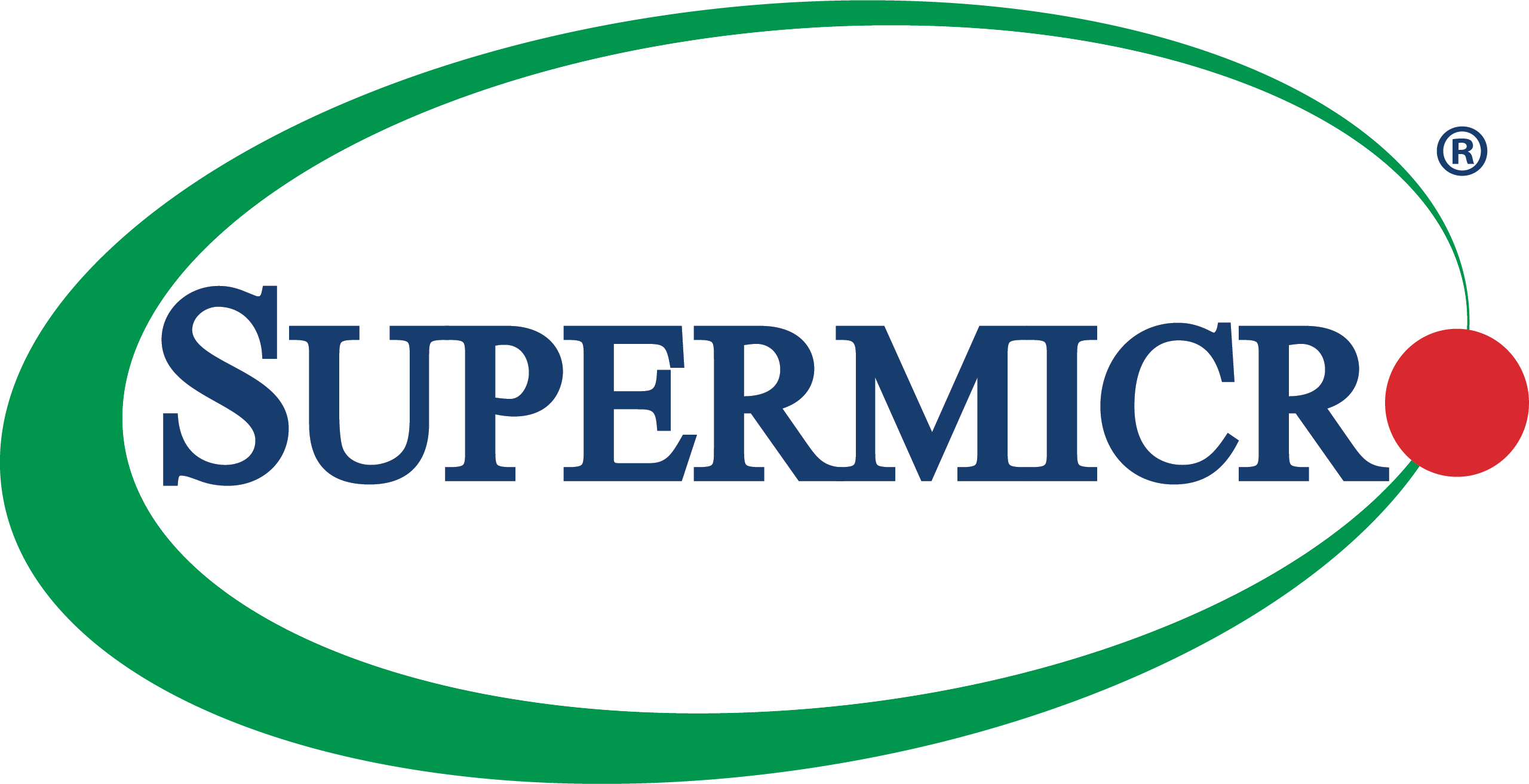SLING Days
Four Points by Sheraton Ljubljana Mons
 We would like to invite you to the "Slovenian Supercomputing Network Days" or "SLING Days", which will take place at the Four Points by Sheraton Ljubljana Mons Hotel.
We would like to invite you to the "Slovenian Supercomputing Network Days" or "SLING Days", which will take place at the Four Points by Sheraton Ljubljana Mons Hotel.
Get to know the Slovenian Supercomputing Network (SLING) and learn about the latest developments in supercomputing in Slovenia and Europe.
The varied program includes presentations on the activities of the National Competence Center for Supercomputing and Centres of Excellence in Supercomputing. We will also present examples of effective use of powerful supercomputers in industry and academia, and explain the possibilities of access to these systems for different users.
Registration is required for this event, which is part of the EuroCC 2 project and the ARNES conference "Mreža znanja".
The event and the workshops are free of charge.
In addition, you will be able to follow the main part of the conference program via live streaming.
Join us and deepen your understanding of the world of supercomputing.
EuroCC 2 project has received funding from the European High-Performance Computing Joint Undertaking (JU) under grant agreement No 101101903. The JU receives support from the Digital Europe Programme and Germany, Bulgaria, Austria, Croatia, Cyprus, Czech Republic, Denmark, Estonia, Finland, Greece, Hungary, Ireland, Italy, Lithuania, Latvia, Poland, Portugal, Romania, Slovenia, Spain, Sweden, France, Netherlands, Belgium, Luxembourg, Slovakia, Norway, Türkiye, Republic of North Macedonia, Iceland, Montenegro, Serbia.
National Competence Centre SLING is co-funded by the Ministry of Higher Education, Science and Innovation, Republic of Slovenia.

Fakulteta za računalništvo in informatiko, Univerza v Ljubljani
-
-
13:30
→
14:30
Lunch and registration 1h
-
14:30
→
16:30
Central European Regional Group Meeting: 1/2 (Closed meeting for NCC members) [Language: English] Šubic 1
Šubic 1
Four Points by Sheraton Ljubljana Mons
Pot za Brdom 4, 1000 Ljubljana
-
14:30
Welcome 5m
-
14:35
NCCs introductions 15m
-
14:50
Training focus 50m
-
15:40
Industry focus 50m
-
14:30
-
14:30
→
16:30
MultiXscale hackathon: 1/2 [Language: English] Šubic 2
Šubic 2
Four Points by Sheraton Ljubljana Mons
Pot za Brdom 4, 1000 LjubljanaThe event will kick off with a 1-hour theoretical session, where participants will be introduced to the core concepts of multiscale simulations. The presentation will cover the following key topics:
- Overview of MultiXscale CoE,
- Introduction to Ultrasound and open boundary water simulations,
- LAMMPS code,
- Overview of EESSI (European Environment for Scientific Software Installations), including how it works and implementation.After the theoretical session, participants will transition into 2-hour hands-on challenge:
- The challenge will involve performing a simulation using LAMMPS with Kokkos in EESSI.
- Participants will simulate the flow past a sphere, utilizing the VEGA supercomputer for calculations.
- This challenge will be a practical application of the tools and concepts covered during the theoretical presentation.Prerequisites:
- Basic knowledge of Python and Bash,
- Access to a VEGA account to participate in the simulation.

-
14:30
Theoretical session 1h
The event will kick off with a 1-hour theoretical session, where participants will be introduced to the core concepts of multiscale simulations. The presentation will cover the following key topics:
- Overview of MultiXscale CoE,
- Introduction to Ultrasound and open boundary water simulations,
- LAMMPS code,
- Overview of EESSI (European Environment for Scientific Software Installations), including how it works and implementation. -
15:30
Hands-on challenge 1/2 1h
After the theoretical session, participants will transition into 2-hour hands-on challenge:
- The challenge will involve performing a simulation using LAMMPS with Kokkos in EESSI.
- Participants will simulate the flow past a sphere, utilizing the VEGA supercomputer for calculations.
- This challenge will be a practical application of the tools and concepts covered during the theoretical presentation.
-
14:30
-
16:30
→
17:00
Coffee break 30m
-
17:00
→
18:00
Central European Regional Group Meeting: 2/2 (Closed meeting for NCC members) [Language: English] Šubic 1
Šubic 1
Four Points by Sheraton Ljubljana Mons
Pot za Brdom 4, 1000 Ljubljana
-
17:00
Dissemination focus 30m
-
17:30
"Hot topics” of the project 30m
-
17:00
-
17:00
→
18:00
MultiXscale hackathon: 2/2 [Language: English] Šubic 2
Šubic 2
Four Points by Sheraton Ljubljana Mons
Pot za Brdom 4, 1000 LjubljanaThe event will kick off with a 1-hour theoretical session, where participants will be introduced to the core concepts of multiscale simulations. The presentation will cover the following key topics:
- Overview of MultiXscale CoE,
- Introduction to Ultrasound and open boundary water simulations,
- LAMMPS code,
- Overview of EESSI (European Environment for Scientific Software Installations), including how it works and implementation.After the theoretical session, participants will transition into 2-hour hands-on challenge:
- The challenge will involve performing a simulation using LAMMPS with Kokkos in EESSI.
- Participants will simulate the flow past a sphere, utilizing the VEGA supercomputer for calculations.
- This challenge will be a practical application of the tools and concepts covered during the theoretical presentation.Prerequisites:
- Basic knowledge of Python and Bash,
- Access to a VEGA account to participate in the simulation.

-
17:00
Hands-on challenge 2/2 1h
- The challenge will involve performing a simulation using LAMMPS with Kokkos in EESSI.
- Participants will simulate the flow past a sphere, utilizing the VEGA supercomputer for calculations.
- This challenge will be a practical application of the tools and concepts covered during the theoretical presentation.
-
17:00
-
13:30
→
14:30
-
-
08:00
→
09:00
Registration 1h
-
09:00
→
11:00
Slovenian Supercomputing Network Day (International): 1/2 [Language: English] Šubic 1+2
Šubic 1+2
Four Points by Sheraton Ljubljana Mons
Pot za Brdom 4, 1000 LjubljanaThe plenary session will be held in English and present topics, such as: NCC collaboration, SMASH postdoctoral program, EuroHPC Vega supercomputer, SLING service portfolio, and a panel discussion about Women in HPC.
-
09:00
Introductory speech 10mSpeaker: Damjan Harisch (ARNES)
-
09:10
Supercomputing in Slovenia – SLING 20m

Samo Stanič will present the organization and mission of the SLING consortium and the challenges we will face in the field of supercomputing in the coming years. Participation in SLING enables Slovenian scientists to competitively engage in major international research trends in particle physics, astrophysics, materials science, and other fields where high computational power is essential for simulations and analyses. One of the goals is also to increase involvement of industry, as advanced supercomputing infrastructure opens doors to new scientific, technological, and economically successful breakthroughs, which are expected with the emergence and spread of artificial intelligence across all fields.
Samo Stanič is the head of the Center for Astrophysics and Cosmology at the University of Nova Gorica, where he studies cosmic high-energy photons and charged particles of extreme energies, as well as related phenomena in the universe using the Cherenkov Telescope Array and Pierre Auger observatories. Since 2022, he has been the coordinator of SLING.
Speaker: Prof. Samo Stanič (Univerza v Novi Gorici) -
09:30
HPC Vega – Slovenian EuroHPC supercomputer 20m


HPC Vega is in its fourth year of operation and has hosted over 80 large-scale EuroHPC JU and domestic projects. In parallel HPC Vega has supported or still supporting many development and smaller benchmark projects, altogether more than 1000 researchers and other users working on 400 projects, representing all major scientific domains. HPC Vega infrastructure is used by development and research activities within EU projects Intertwin, EPICURE, and SMASH. IZUM together with partners supports several Centres of Excellence (like MultiXScale and Max3) and activities of EuroCC SLING led by Arnes. Resources of HPC Vega are available also on commercial pay-per-use terms. Some companies from Slovenia and abroad already run their calculations on HPC Vega. A presentation will provide information on best practices to access such a large public research HPC infrastructure.
Dejan Valh has been the Head of the supercomputing sector for several years, and before that he was the Head of the system support sector at IZUM for many years, where he was employed as a system engineer in 2000. He was one of the technical experts at the tender in the HPC RIVR project, where Slovenia acquired the HPC Vega, the most powerful supercomputer in Slovenia, and later worked as the Head of the HPC RIVR expert council, then as the SLING coordinator, and was an associate member of the INFRAG infrastructure advisory group at to the EuroHPC JU, which jointly funded HPC Vega in 2021.
Speaker: Dejan Valh (Institute of Information Science) -
09:50
SLING Service Portfolio 20m


On overview of the core services provided by SLING as the Slovenian EuroHPC National Competence Centre will serve to round up the presentation of SLING and it biggest HPC system. Our activities centre on getting individual users, research groups, development teams and companies up and using the infrastructure as soon as possible, but we will also present the kinds of access modes and support that we can offer and where to get advanced support by domain experts in Slovenia or in the EuroHPC ecosystem at large.
Jan Jona Javoršek works in digital humanities, computational linguistics and has contributed in distributed computing initiatives, the establishment of the Slovenian National Supercomputing Network SLING, EOSC initiatives and EuroHPC projects, such as HPC Vega and MaX Centre of Excellence.
Speaker: Jan Jona Javoršek (Jožef Stefan” Institute) -
10:10
Supercomputers Adore Deep Learning 30m
In recent years, computer experts have transitioned from mainly designing supercomputers to becoming significant users. The lecture will explore the reasons for the twist, primarily driven by advancements in graphics accelerators. We will delve into the design of graphics accelerators, highlighting the importance of special computational units like tensor cores and new number representations to excel developments in artificial intelligence.
Uroš Lotrič is a professor at the Faculty of Computer and Information Science, University of Ljubljana. He lectures courses on distributed and high-performance computing. His main research interests include approximate and high-performance computing. He is involved in the national supercomputing competence center and cooperates on several European supercomputing projects.
Speaker: Uroš Lotrič (Faculty of Computer and Information Science, University of Ljubljana) -
10:40
Catch the heat - Monitoring system for Server Room 20m
The presentation addresses overheating issues in server room and discusses of monitoring solution at University of Nova Gorica. The proposed solution involves using Raspberry Pi with different sensors to independently monitor temperature and with possibility for extension with other sensors (smoke, light, etc.). Monitoring system (MUNG) is designed to be self-standing with possibility of integration with centralized system, like visualization with Grafana.
Bojan Korečič, is a system maintainer at University of Nova Gorica who combined electronics and computing in a temperature measurement project for the needs of the server rooms at University of Nova Gorica.
Speaker: Bojan Korečič (University of Nova Gorica)
-
09:00
-
11:00
→
11:30
Coffee break 30m
-
11:30
→
13:30
Slovenian Supercomputing Network Day (International): 2/2 [Language: English] Šubic 1+2
Šubic 1+2
Four Points by Sheraton Ljubljana Mons
Pot za Brdom 4, 1000 LjubljanaThe plenary session will be held in English and present topics, such as: NCC collaboration, SMASH postdoctoral program, EuroHPC Vega supercomputer, SLING service portfolio, and a panel discussion about Women in HPC.
-
11:30
NCC Slovenia Collaboration 10m

The presentation will present our strategy to foster international and national collaboration in the field of high-performance computing. Key objectives of our strategy include:
- Accelerating the dissemination of knowledge and best practices through intensified international cooperation.
- Strengthening partnerships between industry and academia to drive innovation and address real-world challenges.
- Collaborating with the CASTIEL 2 initiative as well as general cooperation with the EuroHPC ecosystem (e.g. Centres of Excellence and EDIHs) to enhance the impact of high-performance computing on research and inovation.
- Fostering national networking and collaboration among National Competence Centers (NCCs) to share knowledge and resources.
- Addressing issues related to intellectual property rights to facilitate collaboration and technology transfer.Milan Ojsteršek is a head of the Laboratory for Heterogeneous Computer Systems at the University of Maribor, Faculty of Electrical Engineering and Computer Science. His research focuses on heterogeneous computing systems, the semantic web, natural language processing, open-access repositories, and research data archives. He leads the development and operation of Slovenian open-access infrastructure and several international and national projects connected to the open-access infrastructure, open data, knowledge management, and academic integrity. He participated in the HPC RIVR project, which established the Vega and Maister supercomputers. A group from Laboratory for Heterogeneous Computer Systems was established a big data archive.
Speaker: Milan Ojsteršek (Faculty of Electrical Engineering and Computer Science, University of Maribor) -
11:40
The EPICURE project – a case study 20m

The EPICURE project aims to strengthen support for HPC users in scaling and optimising code. EPICURE covers several key areas: code transformation for different architectures, performance analysis, business benchmarking, code transformation and optimisation. Samo will describe an example of a project that has already been optimised and achieved speedup on HPC Vega.
Dr. Žiga Zebec holds a master’s degree in microbial ecology, molecular microbiology and immunobiology and received his PhD (Doctor of Philosophy) for his dissertation on CRISPR systems. He has completed several trainings, PostDoc in the field of synthetic biology. More recently he received funding for the CellD-synBio project from the Ministry of Education and the EU Cohesion fund. Dr. Zebec has published several scientific papers, authored reviews, presented papers at international conferences and participated in EU-funded projects. In 2023 dr. Zebec joined the team of HPC Vega.
Speaker: Žiga Zebec (Institute of Information Science) -
12:00
SMASH – Machine Learning for Science and Humanities Postdoctoral Program 20m
SMASH – is an innovative, intersectoral, career-development training program for postdoctoral researchers, centred on developing cutting-edge machine learning applications for science and humanities.
It is a five year European project, led by the University of Nova Gorica, co-financed by Horizon Europe, Marie Sklodowska Curie COFUND Action. SMASH aims to support 50 postdoctoral researchers that will use the HPC VEGA, and apply machine learning techniques to address some of the world’s most challenging scientific questions. In this presentation I will give an overview of the program that is now in its second year and projects under development by our fellows.
Gabrijela Zaharijas is associated professor of physics at the University of Nova Gorica. She is a PI of the MSCA project SMASH and works on applications of machine learning algorithms to gamma ray astrophysics.
Speaker: Gabrijela Zaharijas (University of Nova Gorica) -
12:20
Quantum Computing for Fundamental Physics in NISQ era 30m
Tomaž Prosen will discuss the current status of quantum computing in NISQ era in the context its utility in fundamental physics research. As an example he will present his recent collaboration with Google Quantum AI lab on simulating quantum transport and full counting statistics in quantum magnets.
Tomaž Prosen is a Full Professor at the Faculty for mathematics and physics, University of Ljubljana, and leads a resarch group for Nonequilibrium quantum and statistical physics. His main research focus is in quantum many-body physics and exactly solvable models of dynamics.
Speaker: Tomaž Prosen (Department of Physics, Faculty of Mathematics and Physics, University of Ljubljana) -
12:50
Women in HPC - Panel Discussion 40m


The panel discussion is organized as an activity of the Central European Chapter of Women in HPC, committed to raising awareness of the unique challenges women face in high-performance computing (HPC) and advocating for inclusive policies and practices within organizations. By promoting these values, they aim to create a more welcoming environment for everyone in HPC.
We will host users and researchers who work with HPC in their fields. They will share their experiences, perspectives, and advice on how to establish a more inclusive environment for women and achieve greater balance in this area.
Claudia Blaas-Schenner studied Technical Physics at TU Wien, where she also earned her PhD and completed her postdoc. She started with supercomputer calculations in 1990 and has since delved deeper into the field. Today, Claudia Blaas-Schenner is one of the world's most recognised HPC experts. In 2015, she founded the training programme at Austria’s supercomputer, the VSC, and has been its director ever since. She is one of the top experts in MPI and chair of the EuroMPI/Australia 2024 conference.
Alja Prah is part of the supercomputing team at Jožef Stefan Institute, involved with supporting most Slovenian supercomputers. At the same time she is continuing to pursue her research (from which she obtained a PhD in Pharmacy in 2021) as part of the Theory Department at the National Institute of Chemistry.
Ivona Vasileska has a PhD in nuclear engineering and has been a researcher and teaching assistant at the Faculty of Mechanical Engineering, University of Ljubljana, Slovenia. Her research focuses on plasma physics, nuclear fusion, and high-performance computing (HPC). In recent years, she has expanded her work to parallel computing for machine learning. Vasileska has contributed to over 12 European projects in fusion and HPC and has authored more than 30 journal and conference papers in high-impact publications in fusion, and HPC.
Iva Černoša is a PhD student of bioinformatics at University of Ljubljana. She uses supercomputers as part of her research for analysis of big genomic files and to train models for prediction of gene expression in plants.
-
11:30
-
13:30
→
14:30
Lunch 1h
-
14:30
→
16:30
Centres of Excellence and Business Incubator: 1/2 [Language: English] Šubic 1+2
Šubic 1+2
Four Points by Sheraton Ljubljana Mons
Pot za Brdom 4, 1000 Ljubljana-
14:30
Centres of Excellence 2h
The CoEs interaction at SLING days 2024 present a great opportunity to share your thoughts.
It will be great to hear from several CoE-s what works well for them, the do's and don'ts for discussed topics.
The agenda for the session:
- CoEs introductions
- Good practices examples
- Do’s and don’t-s
- Collaboration with NCCs and between CoEsCoE-s involved:
- CoE MaX
- CoE Plasma-PEPSC
- CoE EXCELLERAT
- CoE MultiXscale
- CoE POP3
-
14:30
-
16:30
→
17:00
Coffee break 30m
-
17:00
→
18:00
Centres of Excellence and Business Incubator: 2/2 [Language: English] Šubic 1+2
Šubic 1+2
Four Points by Sheraton Ljubljana Mons
Pot za Brdom 4, 1000 Ljubljana-
17:00
Industry incubator for NCCs and CoEs 1h
This session will not focus on the usual "success story" format bout rather on a "collaboration example" format more in a workshop direction. Meaning working with a SME is be focused on:
- how you address (come in contact) with an SME
- difference between collaboration and subcontracting
- the involvement of your institution at different stages of a project - what is the expected obligation from each partner; where during a project your institution helps and what to expect
- chances for additional cofounding of a project?
- the gains for a SME
- usage of a HPC - how to get onboard, how your institution helps
- innovative approachesThe agenda for the session:
- Presentation of work with industry (NCC Czechia)
- Interaction with industries (NCC Netherland)
- HPC4SME tool presentation - usability (NCC Slovenia - Arctur)
- Using the Fortissimo project(s) to attract SMEs to the NCC activities
-
17:00
-
08:00
→
09:00
-
-
08:00
→
09:00
Registration 1h
-
09:00
→
11:00
Dan slovenskega superračunalniškega omrežja: 1/2 [Language: Slovenian] Plečnik 4
Plečnik 4
Four Points by Sheraton Ljubljana Mons
Pot za Brdom 4, 1000 LjubljanaPlenarna predavanja na Dnevu slovenskega superračunalniškega omrežja bodo pokrivala tematike od nevroznanosti in velikih jezikovnih modelov pa vse do digitalne humanistike in hekatonov.
-
09:00
Uvodni nagovor 10m
Direktor Akademske in raziskovalne mreže Slovenije
Speaker: Marko Bonač -
09:10
Raziskovalni program Digitalna humanistika: viri, orodja in metode 20m
Digitalizacija kulturne dediščine v Sloveniji zaostaja za evropskim povprečjem. Z izjemo korpusnega jezikoslovja in literarne zgodovine, ki razpolagata s številnimi bogato označenimi in mednarodno priznanimi korpusi in znanstvenokritičnimi izdajami, je datafikacija raziskovalnih virov v slovenski humanistiki močno fragmentirana, ti pa so obenem v veliki meri nezdružljivi, saj uporabljajo različne standarde kodiranja. Predstavili bomo raziskovalni program "Digitalna humanistika: viri, orodja in metode", ki preči omenjene ovire in skrbi za zajem, organizacijo, shranjevanje, obogatitev, analizo, vizualizacijo, interpretacijo podatkov digitalnih in digitaliziranih virov.
Filip Dobranić je filozof in sociolog kulture ter doktorski kandidat na Fakulteti za računalništvo in informatiko Univerze v Ljubljani. V sklopu doktorskega študija raziskuje in razvija pristope k semantični segmentaciji zgodovinskih tiskanih medijev s fokusom na multimodalne modele, primarno modele za računalniški vid z uporabo zemljevidov besedilnih vložitev. Onkraj študijskih obveznosti zbira in kurira korpuse digitaliziranih zgodovinskih in sodobnih digitalnih virov, ter sodeluje z drugimi raziskovalkami_ci pri njihovi analizi.
Speaker: Filip Dobranić (Inštitut za novejšo zgodovino) -
09:30
Projekt LSST 20m
Observatorij Vere Rubin v Čilu bo leta 2025 pričel izvajati široko-kotni pregled neba Legacy Survey of Space and Time – LSST, pri katerem sodeluje tudi Univerza v Novi Gorici. V desetih letih bo opazoval 17 milijard zvezd in 20 milijard galaksij ter ustvaril največjo bazo podatkov o astronomskih objektih, ki bo služila kot osnova raznovrstnim raziskavam, od proučevanja našega Osončja in Galaksije do kozmoloških ugank temne snovi in temne energije.
Andreja Gomboc je profesorica za astronomijo na Fakulteti za naravoslovje in raziskovalka v Centru za astrofiziko in kozmologijo na Univerzi v Novi Gorici. Je članica več mednarodnih astronomskih kolaboracij in proučuje pojave povezane s črnimi luknjami. Vodi sodelovanje Slovenije pri Observatoriju Vere Rubin in so-upravlja EU projekt COFUND SMASH. Je so-pobudnica izobraževalnega teleskopa GoChile, promotorka astronomije in kolumnistka časopisa Delo.
Speaker: Andreja Gomboc (Univerza v Novi Gorici) -
09:50
Projekt “Gravitacija” 20mSpeaker: Sašo Dzeroski (Institut "Jožef Stefan")
-
10:10
Veliki jezikovni modeli 30mSpeaker: Marko Robnik Šikonja (Fakulteta za računalništvo in informatiko Univerze v Ljubljani)
-
09:00
-
09:00
→
11:00
Superračunalništvo za industrijo: 1/3 [Language: Slovenian] Plečnik 5
Plečnik 5
Four Points by Sheraton Ljubljana Mons
Pot za Brdom 4, 1000 LjubljanaVas zanima več o uporabi superračunalnika v vašem podjetju in kako lahko pri tem uporabljate SLING infrastrukturo? Predstavili vam bomo superračunalnik VEGA, primere dobre rabe v industriji, ter možnosti sodelovanja in rabe nacionalne in mednarodne infrastrukture.
-
09:00
Uvodni pozdrav 15mSpeaker: TBA
-
09:15
Kako lahko podjetja pridobijo dostop do superračunalniških virov SLING 20mSpeaker: Dejan Valh (Institut informacijskih znanosti Maribor)
-
09:35
Arctur HPC: Pospeševanje razvoja in inovacij s superračunalniško močjo 20mSpeaker: Tristan Pahor (Arctur d.o.o.)
-
09:55
Kaj prinaša novi Vodič uvajanja umetne inteligence v mala in srednja podjetja 20mSpeaker: Mitja Trampuž (AI4SI)
-
10:15
Kako spodbujati pismenosti na področju umetne inteligence 20mSpeaker: Mateja Baebler (Združenje za informatiko in telekomunikacije, GZS)
-
10:35
Nevroznanost in umetna inteligenca: potenciali in problemi iz perspektive startupa 25m
Marko Grobelnik je raziskovalec na področju umetne inteligence na Odseku za umetno inteligenco Instituta »Jožef Stefan«, soustanovitelj Mednarodnega raziskovalnega centra za umetno inteligenco pri UNESCO (IRCAI) in direktor podjetja Quintelligence.com. Marko je soavtor več knjig, soustanovitelj več start-upov in sodeluje oziroma je sodeloval v preko 100 mednarodnih raziskovalnih projektih na različnih področjih umetne inteligence. Marko zastopa Slovenijo v odboru OECD za umetno inteligenco (AIGO/ONEAI), v odboru Sveta Evrope za umetno inteligenco (CAHAI/CAI), pri NATO (DARB), ter v Globalnem partnerstvu za umetno inteligenco (GPAI). Leta 2016 je bil imenovan za »Digitalnega glasnika Slovenije« pri Evropski komisiji.
Speaker: Marko Grobelnik (Institut “Jožef Stefan”)
-
09:00
-
11:00
→
11:30
Coffee break 30m
-
11:30
→
13:30
Dan slovenskega superračunalniškega omrežja: 2/2 [Language: Slovenian] Plečnik 4
Plečnik 4
Four Points by Sheraton Ljubljana Mons
Pot za Brdom 4, 1000 LjubljanaPlenarna predavanja na Dnevu slovenskega superračunalniškega omrežja bodo pokrivala tematike od nevroznanosti in velikih jezikovnih modelov pa vse do digitalne humanistike in hekatonov.
-
11:30
RIS-Hackathon 20mSpeaker: Andrej Studen (Institut “Jožef Stefan”)
-
11:50
Data Flow in Clinical Genetics for Rare Diseases 20mSpeaker: Blaž Vhrovšek (UKC Ljubljana)
-
12:10
HPC za nevroznanost 20mSpeaker: Nina Omejc (Institut “Jožef Stefan”)
-
12:30
Napovedovanje časovnih vrst v sistemih upravljanja z energijo 20mSpeaker: Niko Uremovič (UM FERI)
-
12:50
Inter Twin 20m
Projekt InterTwin v okviru programa Obzorje Evropa razvija splošno in zmogljivo platformo za podporo interdisciplinarnim digitalnim dvojčkom. Enaintrideset znanstvenih partnerskih institucij združuje ponudnike infrastrukture, ponudnike tehnologije in primere uporabe iz podnebnih raziskav in spremljanja okolja, fizike visokih energij in astrofizike osnovnih delcev ter radijske astronomije. Strokovnjaki omogočajo sooblikovanje arhitekture digitalnih dvojčkov in prototipne platforme, ki koristi končnim uporabnikom, kot so znanstveniki in oblikovalci politik, pa tudi razvijalcem. To dosega z bistveno poenostavitvijo postopka ustvarjanja in upravljanja zapletenih delovnih tokov digitalnih dvojčkov. Sodelavci Instituta Jožef Stefan in IZUM so superračunalnik Vega vključili v demonstracijsko infrastrukturo, ki procesira podatke iz prej omenjenih primerov uporabe s transparentnim upravljanjem podatkov in računskih virov.
Andrej Filipčic je redni profesor na Univerzi v Novi Gorici in raziskovalec na Odseku za eksperimentalno fiziko osnovnih delcev Instituta Jožef Stefan. Je član eksperimenta ATLAS v CERNu in Observatorija Pierre Auger v Argentini, sodeluje pri več evropskih projektih, ter se intenzivno ukvarja z distribuiranim računanjem in procesiranjem velike količine podatkov zajetih na trkalniku LHC. Prispeval je k ustanovitvi Slovenskega superračunalniškega omrežja SLING, sodelovanju v EuroHPC ter vzpostavitvi superračunalnika Vega.
Speaker: Andrej Filipčič (IJS) -
13:10
Globalna optimizacija 20mSpeaker: Borko Boškovič (UM FERI)
-
11:30
-
11:30
→
13:30
Superračunalništvo za industrijo: 2/3 [Language: Slovenian] Plečnik 5
Plečnik 5
Four Points by Sheraton Ljubljana Mons
Pot za Brdom 4, 1000 LjubljanaVas zanima več o uporabi superračunalnika v vašem podjetju in kako lahko pri tem uporabljate SLING infrastrukturo? Predstavili vam bomo superračunalnik VEGA, primere dobre rabe v industriji, ter možnosti sodelovanja in rabe nacionalne in mednarodne infrastrukture.
-
11:30
HPC za inovativne konfiguracije v letalstvu 25mSpeaker: Sašo Knez (AformX)
-
11:55
Globoko učenje za razumevanje Lidar oblakov točk in uporaba superračunalniške infrastrukture 25mSpeaker: Nejc Dougan (Flai d.o.o.)
-
12:20
Uporaba HPC pri razvoju gospodinjskih aparatov 25mSpeaker: Jure Mencinger (Gorenje d.o.o. (Hisense Europe))
-
12:45
Uporaba metodologije načrtovanja eksperimentov (DOE) v računski dinamiki tekočin (CFD) za optimizacijo zasnove plinskega gorilnika 20mSpeakers: Matej Emin (Culmium), Primož Žibret (Procesni inženiring)
-
13:05
Code4EV – projekt sodelovanja z umetno inteligenco za snovanje novih pogonskih rešitev 25m
Tomaž Kompara je vodja ekipe za razvoj programske opreme kontrole dinamike vozila, Elaphe.
Diplomiran inženir elektrotehnike in doktorant na področju umetne inteligence vodi ekipo za razvoj kontrolnih algoritmov vozil v podjetju Elaphe. Njegovo delo vključuje raziskave in razvoj naprednih metod za integracijo kolesnih elektromotorjev z direktnim prenosom. S svojim prispevkom spodbuja inovativne rešitve na področju električnih pogonov ter uvaja nove pristope k zasnovi in oblikovanju električnih vozil.
Speaker: Tomaž Kompara (Elaphe)
-
11:30
-
13:30
→
14:30
Lunch 1h
-
14:30
→
16:30
GaMS pušča sveže sledi v snegu: delavnica prilagajanja Slovenskega LLM na infrastrukturi SLING: [Language: Slovenian] Plečnik 4
Plečnik 4
Four Points by Sheraton Ljubljana Mons
Pot za Brdom 4, 1000 LjubljanaNa delavnici bomo spoznali superračunalniško infrastrukturo SLING in na praktičnem primeru slovenskega velikega jezikovnega modela GaMS, pogledali, kako lahko na njej prilagajamo velike jezikovne modele lastnim potrebam.
Potrebno predznanje: Lupina Linux, programski jezik Python
Prinesi s seboj: Dobro voljo in prenosni računalnikDelavnico bosta izvedla: Domen Vreš, (UL FRI) in dr. Davor Sluga, asist. (UL FRI)
-
14:30
→
16:30
Superračunalništvo za industrijo: 3/3 [Language: Slovenian] Plečnik 5
Plečnik 5
Four Points by Sheraton Ljubljana Mons
Pot za Brdom 4, 1000 LjubljanaVas zanima več o uporabi superračunalnika v vašem podjetju in kako lahko pri tem uporabljate SLING infrastrukturo? Predstavili vam bomo superračunalnik VEGA, primere dobre rabe v industriji, ter možnosti sodelovanja in rabe nacionalne in mednarodne infrastrukture.
-
14:30
Nevroznanost in umetna inteligenca: potenciali in problemi iz perspektive startupa 25mSpeaker: Jurij Dreo (BrainTrip Limited)
-
14:55
Ansys HPC-rešitve 25mSpeaker: Marko Kolenc (SIMTEC, Ansys)
-
15:20
Optimizacija superračunalniških podatkovnih centrov 25mSpeaker: Branko Jovanović (ADVANT d.o.o.)
-
15:45
High Performance Computing Solutions by Supermicro 30m


Predstavitev bo ponudila vpogled v to, kako Supermicrovi skalabilni sistemi HPC podpirajo področja, kot so umetna inteligenca, znanstvene raziskave, finančne storitve, zdravstvo, energetika in proizvodnja. Odkrijte, kako te rešitve podjetjem omogočajo, da povečajo zmogljivost, pospešijo obdelavo podatkov in ostanejo konkurenčna v današnjem okolju, ki zahteva veliko podatkov.
Speaker: Petr Karbus (Supermicro) -
16:15
S SLINGOM do inovacij: HPC4SME AAT in razvoj PoC 15mSpeaker: Tina Č. Marc (Arctur d.o.o.)
-
14:30
-
16:30
→
17:00
Coffee break 30m
-
17:00
→
18:00
Superračunalništvo za industrijo: B2B in mreženje [Language: Slovenian] Plečnik 5
Plečnik 5
Four Points by Sheraton Ljubljana Mons
Pot za Brdom 4, 1000 LjubljanaVas zanima več o uporabi superračunalnika v vašem podjetju in kako lahko pri tem uporabljate SLING infrastrukturo? Predstavili vam bomo superračunalnik VEGA, primere dobre rabe v industriji, ter možnosti sodelovanja in rabe nacionalne in mednarodne infrastrukture.
-
17:00
→
18:00
Varna, interna UI za kompleksne izzive - interaktivna demonstracija: [Language: Slovenian] Plečnik 4
Plečnik 4
Four Points by Sheraton Ljubljana Mons
Pot za Brdom 4, 1000 LjubljanaDelavnica je namenjena vsem podjetjem, ki želijo izkoristiti potencial generativne umetne inteligence za izboljšanje svojih poslovnih procesov, ob hkratnem zagotavljanju varnosti in zaupnosti podatkov. Posebej primerna je za:
vodstvene kadre, ki želijo razumeti strateške implikacije uporabe UI v podjetju, IT strokovnjake, ki se ukvarjajo z implementacijo in integracijo UI rešitev, produktne vodje in razvijalce, ki iščejo načine za vključitev UI v svoje produkte ali storitve, strokovnjake za varnost podatkov, ki se zanimajo za varne načine uporabe UI v poslovnem okolju.Delavnico bo izvedel Domen Krč, svetovalec in specialist za digitalizacijo poslovnih procesov in umetno inteligenco, Creaplus
-
08:00
→
09:00




